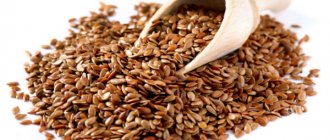Why does neurosis appear during menopause?
Not so long ago, doctors believed that during menopause, women develop neurosis due to a decrease in the level of sex hormones - estrogen and progesterone.
But studies were conducted on the case histories of menopausal patients diagnosed with neurosis, which refuted the existing opinion and put forward a new one. First, let's take a look at the results of the study. Approximately 15% of women diagnosed with neurosis had regular periods and normal hormonal levels. In almost 40% of women, neurosis appeared only 5-15 years after menopause, when the body had a consistently low level of hormones.
In half of the patients, neurosis began to develop simultaneously with menopausal symptoms: menstrual irregularities, hot flashes, increased sweating, irritability and others. Scientists have concluded that neurotic manifestations, just like menopause, cause age-related changes in the hypothalamus. It is located in the brain and is responsible for endocrine functions in a woman’s body, as well as her behavior and emotions.
Menopause is not a reason to worry!
March 26, 2013
You began to notice that familiar things cause irritation, your mood changes like the weather at the beginning of spring, you do not enjoy the rays of the sun and do not admire the colors of life. Typically, the arrival of menopause is associated with increased nervousness in women, and hot flashes generally make life unbearable. In fact, you can go through this difficult period of life without irritability and tears. Let's figure out how to do this.
Storm in a teacup
Restructuring in the female body usually begins after forty years and is associated with a gradual decline in the function of the ovaries, which produce the main female sex hormones - estrogens and progesterone. They are protection and support throughout life. Scientists claim that it is estrogens that make women so hardy and, at the same time, attractive, they also protect health, protect the heart and blood vessels, internal organs, bones and skin.
Unfortunately, changes in hormonal balance inevitably occur after 45-50 years and lead, among other things, to disturbances in the psycho-emotional state.
Many women in the reproductive period report irritability, tearfulness, and sleep disturbances for several days before their next menstruation - these symptoms are also a consequence of hormonal changes, the so-called premenstrual syndrome (PMS). During menopause, these manifestations are more pronounced and frighten women even more, upset them and lead them into confusion. However, do not worry, these symptoms are temporary and will certainly subside with proper behavior. The main thing is not to be left alone with your problems, but to seek help from a specialist.
Unfortunately, we cannot prevent the aging process of the body, but every age has its own wonderful moments. Many people note that after 50 years they begin a second life. The children grew up and left their parents' home. Work no longer brings as much anxiety as before, thanks to experience and worldly wisdom, you have more time for yourself and for your partner. So why waste it on trifles and spend it in sadness?
The autumn of life can be happy, bright, emotional and full of interesting events and adventures. It all depends on your mood. Try to find out as much as possible about the upcoming changes, because he who is forewarned is armed, which means he is ready to bravely confront any adversity.
Where does the wind blow from
Recent scientific research has revealed a lot of new things in the study of the intellectual and emotional changes that occur with a woman during menopause. It is hypothesized that estrogens have a protective effect, controlling cognitive functions such as thinking and perception, as well as the ability to be flexible to external and internal changes. Estrogens help us stay calm, and when they decrease, anxiety and irritability arise - some of the most common symptoms of menopause. Some women, even before other symptoms of menopause appear, complain of decreased memory and difficulty remembering new information.
If you are approaching menopause, which usually occurs at 50-51 years old, and you notice undesirable changes, you need to consult your doctor who will help you cope with these disorders. Today, specialists have various methods and means at their disposal, including the possibility of replenishing hormone deficiency.
According to the recommendations of the International Menopause Society, the approach to maintaining a woman’s health after 40 years of age should be comprehensive and may include regular exercise, a balanced diet, and other preventive and therapeutic measures. If necessary, only a doctor can prescribe hormone replacement therapy to treat pathological conditions associated with the onset of menopause. This treatment is prescribed strictly according to indications; drugs and duration of therapy are selected by a specialist individually, taking into account contraindications. You cannot take medications on your own. Treatment helps reduce or eliminate hot flashes, prevent and delay late complications of menopause, such as osteoporosis and vascular diseases.
However, not all emotional problems are explained by the onset of menopause. Various life difficulties, family troubles, strained relationships with children or work colleagues can cause psychological disorders, and the onset of menopause and a deficiency of sex hormones can aggravate them. If you feel that you cannot cope with all the problems yourself, another option is to consult a psychotherapist. Of course, we do not have such a tradition, but the experience of other civilized countries shows the high effectiveness of psychotherapy for solving personal and family problems.
Tides day or night
Hot flashes, night sweats, palpitations (increased heart rate) are the main symptoms that occur in 50-60% of women at the onset of menopause.
During a hot flash, a woman feels heat, redness of the face, neck, chest, which is accompanied by profuse sweating and palpitations. This is due to the dilation of tiny blood vessels located under the skin.
Another problem during menopause is night sweats and waking up in hot, profuse sweat. Most women who have night sweats experience hot flashes during the day, but not necessarily the other way around. By the way, night sweats can be a consequence of various diseases, so you should definitely consult a doctor about this. For comfortable well-being, normal performance and good mood, it is very important that the body rests during a full night's sleep, but frequent getting up at night and regular lack of sleep can lead over time to the development of depression.
Sudden facial redness and night sweats are explained by disruption of the systems that regulate vascular tone. These manifestations are harmless, but they cause a lot of trouble for the woman.
Hot flashes usually first appear two to three years before menopause and continue for a year in 80% of women. In subsequent years, the frequency of tides decreases. However, almost a quarter of women suffer from them for more than 5 years, and some endure these troubles at 70 and even 80 years old. The average duration of hot flashes can be about four minutes, their frequency varies from several times an hour to two or three episodes per month.
Many women believe that they just need to get through menopause and therefore, when even severe symptoms appear, they do not consult a doctor and suffer in silence. However, everything can be changed, get medical advice on changing lifestyle, nutrition, and ultimately, if necessary, treatment.
During menopause, you need to be especially careful about your health.
Important: six rules for well-being during menopause
- Quit smoking (tobacco smoking causes hot flashes).
- Limit the consumption of sugar, salt, spices, chocolate, coffee, tea, cola, hot soups that provoke hot flashes. Don't overeat.
- Wear loose clothing made from natural fabrics, preferably with short sleeves, weather permitting.
- Be in the fresh air more often, ventilate the room you are in.
- Do exercises regularly. Women who play sports better tolerate both the physical and psychological manifestations of menopause. Try to avoid activity at the time when hot flashes occur (write down the time when and in what situation they occur, then you can identify the pattern of their occurrence, provoking factors and, perhaps, prevent their development).
- Learn relaxation techniques. The ability to relax in time reduces the intensity of hot flashes and helps put your nerves in order.
How to cope with insomnia?
If you are depressed or excited, or have excessive night sweats, you may have difficulty falling asleep. Because of this, a good night's rest will become rare. Typically, without hormonal changes, women fall asleep faster and spend more time in deep sleep, so they feel more refreshed when they wake up in the morning. The deep sleep stage appears to be especially important for feeling rested and refreshed after sleep.
To sleep peacefully, you should get rid of night sweats; following these rules will help you:
- try to go to bed at the same time,
- an hour before bed, take a walk in the fresh air,
- be sure to ventilate the bedroom in the evening, keeping the air temperature cool,
- choose bed linen and nightwear made from cotton,
- Many people suffering from insomnia benefit from drinking warm milk before bed.
Note: emotional symptoms of menopause:
- Irritability;
- Nervousness;
- Forgetfulness;
- Fast fatiguability;
- Weakness;
- Difficulty concentrating;
- Headache, dizziness;
- Tearfulness;
- Depression.
menopause.health-ua.org
Causes and symptoms of neurosis during menopause
For many women, menopause occurs with complications. From a medical point of view, this is easy to explain. The body depends on hormones. Estrogens are invisible protectors of the patient's mental and physical health. When their production by the ovaries decreases, women experience disruptions in the menstrual cycle. After some time it stops, and the woman loses her ability to bear children.
What happens when the ovaries stop producing estrogen:
- blood vessels become less elastic;
- the patient's metabolism slows down;
- the skin loses its elasticity.
Not all women can be philosophical about the fading of their beauty.
Impressionable and suspicious natures can fall into long-term depression. A vulnerable woman perceives the aging of her body with rejection and bitterness.
One of the causes of neuroses in middle-aged patients is changes in the hypothalamus. This is the name of the part of the diencephalon that regulates the functioning of the most important glands of the human body. This part is connected by nerve pathways to almost all parts of the central nervous system.
The hypothalamus regulates the following reactions of the human body:
- feeling of hunger and satiety;
- falling asleep and staying awake;
- sexual desire.
This organ affects a person’s ability to remember information and the emotional state of the patient. It is easy to guess that age-related transformations of the hypothalamus affect the functioning of the most important organs of a woman.
Initially, experts considered the cause of this condition to be a lack of hormones. Today its occurrence is associated with problems with the hypothalamus and hormonal levels in women.
Changes in psychological state are facilitated by external factors. Neurosis can develop due to:
- character traits;
- constant lack of sleep;
- hereditary predisposition;
- weak immune defense;
- stressful situations;
- chronic fatigue;
- overstrain of the body.
With menopausal neurosis, symptoms appear at different levels (physical, vegetative). They are expressed in:
- constipation, flatulence;
- heart pain;
- increased fatigue;
- itching of the genitals;
- hot flashes;
- pain accompanying urination;
- tachycardia;
- the appearance of tinnitus;
- increased bone fragility;
- paresthesia;
- excessive sweating;
- problems with the cardiovascular system;
- dizziness.
Among the signs:
- headache;
- problems falling asleep;
- unstable mood;
- irritability;
- touchiness;
- negative, overly attentive, indifferent attitude towards one’s appearance;
- tearfulness;
- decreased appetite.
Neurosis is dangerous due to complications: depression, self-isolation, apathy, panic, mania. Such signs of the disease are the result of the internal state of a woman who has lost her reproductive function. Patients often develop suicidal tendencies.
Among the severe complications that can result from hormonal imbalance are the development of:
- cancer of the genital organs, mammary glands;
- mastopathy;
- osteoporosis.
Among the symptoms of neurosis is the appearance of wrinkles. At the same time, posture and body may change, and weight may increase/decrease. The condition is complex when a woman suffers from both VSD and menopausal neurosis. Signs that appear in this case:
- pressure surges;
- the appearance of an unpleasant taste in the mouth;
- frequent urination;
- Strong headache;
- fear accompanied by hysteria, panic;
- pain in the heart area.
Sedative medications
Your specialist will tell you which antidepressant medications are best to take, after conducting a preliminary diagnosis, and taking into account the characteristics of your body.
Common sedative medications for menopause are:
These and other drugs are effective and most gentle on the female body. Basically, they not only have a sedative effect, but are able to relieve pain, spasms and even have a restorative effect.
Features of neurosis
You should know that neurosis has the following types of mental disorders:
- Vegetative system. These include: rapid fatigue, memory deterioration, difficulty concentrating, sleep disturbances, including the development of insomnia. As a result, performance decreases sharply.
- Hysterical. The woman's resistance to stress is significantly reduced, and it is difficult for her to cope with even minor stress. The woman becomes capricious, whiny and prone to hysterics. This manifests itself in increased sensitivity and making claims against loved ones.
- Hypochondriacal. They manifest themselves in increased attention to one’s own person and the state of one’s health. A woman demands constant attention from those around her. She looks for symptoms of diseases and finds non-existent diseases or pathologies.
- Depressed. The lady's mood often changes. She develops an anxious mood and loses the desire to do anything.
When a woman develops neurosis during menopause, she may have either one type of the disorders discussed, or several, or the entire list.
Manifestations of the problem
Common symptoms of menopausal neurosis in women:
- increased sweating;
- dyspnea;
- noise in ears;
- sudden jumps in blood pressure;
- heart pain;
- a feeling of unbearable heat, which is accompanied by redness of the skin;
- increased irritability;
- apathy;
- tearfulness;
- sudden change in mood.
A woman complains of constant fatigue. She may also have trouble sleeping. Many ladies at this time of life are bothered by numbness in their arms and legs. This unpleasant condition develops due to poor circulation.
People around you may notice that the woman’s suspiciousness has increased. During menopause, a woman may exaggerate her ailments, and also perceive with painful attention the signs of aging (gray hair, wrinkles, age spots on the skin). Ladies over 45 often go to extremes regarding their appearance. They come in two types.
- The woman stopped taking care of herself and keeping her clothes tidy.
- The lady resorts to bold methods of rejuvenation (does Botox injections, turns to plastic surgeons for help). Many women dress too brightly and provocatively.
A sociable woman during menopause can turn into a strict recluse who tries with all her might to avoid visiting crowded places. Ladies who were previously confident become touchy and whiny. Some women during menopause are terrified of being alone. They may be exhausted by the fear of the appearance of a young rival. The most dangerous manifestation of neurosis is thoughts of suicide.
Natural antidepressants
Valerian
Perhaps there is not a single person who has not heard and experienced the beneficial sedative effect of valerian. The extract of this plant is used with great success and widespread use by women during menopause, especially in its initial stages, when the symptoms have not gained much momentum. Valerian is used both as an extract in herbal preparations, homeopathic remedies, dietary supplements, and in the form of tablets, drops, and tinctures. Helps stabilize blood pressure, eliminate anxiety, overcome insomnia during menopause, and also reduce pain and spasms. It is worth consuming according to the dosage, since exceeding the norm can lead to drowsiness, loss of coordination, and weakness.
Motherwort
Another plant that has an effective sedative effect. It has no contraindications and is suitable for almost everyone. Normalizes sleep, prevents seizures, suppresses irritability and excitability, and normalizes heart rate. It is also included in many medications, preparations, or is presented in concentrated form in tablet or drop form.
Oregano
Helps cope with neuroses and other nervous disorders, helps eliminate hot flashes. It is more often found in herbal preparations, based on which infusions and teas are used for menopause.
Sage
It is effective as infusions and teas, as well as in the form of oils for aromatherapy, the effectiveness of which is noted in many reviews. By following the link, find out how to take sage for menopause and hot flashes.
Causes and symptoms of neurosis during menopause
Term.
Let's consider what symptoms climacteric neurosis may have:
- sudden change in mood;
- the appearance of unreasonable irritability;
- negative perception of one's external data;
- suspiciousness;
- dizziness;
- noise in ears;
- decreased appetite;
- feeling of chronic fatigue;
- increased sweating;
- sleep disturbance: difficulty falling asleep in the evening, sudden awakening at night after which it is difficult to fall asleep again;
- insomnia;
- heart pain not caused by organic causes;
- constipation or flatulence;
- excessive concern for one’s appearance or, conversely, complete indifference to it;
- lack of desire to communicate, up to the development of social phobia.
Another manifestation of this condition is a decrease in self-esteem. A woman may have obsessive thoughts that she has lost her attractiveness to her husband and may be abandoned. She tries to become more helpful to everyone in the family and tries to do more work. As a result, the woman becomes more tired and the disease worsens.
Main symptoms of depressed mood during menopause
Depressed mood is not always a direct indication for taking medications. Depression during menopause has its own symptoms, but they are taken into account as a whole. Treatment is prescribed based on the following symptoms and their frequency:
Many of these symptoms can be caused not only by psychological disorders, but also by hormonal imbalance. Therefore, it is very important to accurately establish the cause of such manifestations. If symptoms continue for more than two weeks, gradually intensifying, then a visit to the hospital should not be postponed. The fewer manifestations, the easier it is to return to a normal lifestyle again.
Frequent ailments
People far from medicine may think that neurosis during menopause is the usual whims of middle-aged women. This opinion is wrong. Every second woman experiences the painful symptoms of menopausal neurosis to one degree or another.
A dangerous relationship arises between the instability of the lady’s emotional state and physical ailments. Deterioration in well-being causes a woman to become hot-tempered and tearful. Too violent emotional reactions become the culprits of tachycardia (rapid heartbeat), shortness of breath and insomnia.
Severe discomfort for women is caused by a decrease in the functions of the vestibular apparatus. How do these changes manifest themselves?
- a woman is sometimes worried about imbalance;
- my head is spinning.
Vascular pathologies are frequent accompaniments of menopause. The heart also has to deal with increased stress.
A cough during menopause indicates that the woman does not have enough oxygen. Emotional instability is to blame for this malaise. The patient is negative, so she worries too much about her appearance and is suspicious of any criticism (even that which is not related to appearance). As a result of frequent worries, healthy hearts begin to work intermittently.
Physical weakness and the inability to get a good night's sleep also negatively affect the woman's general condition. including on her appearance. A woman’s desire to keep herself in good shape disappears. If she previously devoted time to morning exercises every day, during menopause she may give up on herself.
Constant nervous tension can have such dangerous consequences as uterine bleeding and glaucoma.
Signs of neurosis in women
According to statistics, neurotic disorders of various types are diagnosed 2 times more often in women than in men. This is due to the fact that in women the emotional background is unstable due to hormonal changes. Often signs of neurotic disorders appear during pregnancy or menopause.
The excitability of the nervous system is also higher, and therefore a hysterical form of neurosis most often occurs. It manifests itself as sudden crying, screaming, uncontrollable laughter, and uncontrolled movements. This form is associated with theatricality, that is, such attacks do not occur alone.
Provoking factors for the occurrence of female neurosis are often associated with personal family life. It could be:
- family problems;
- domestic violence;
- divorce;
- absence of a child;
- pressure from relatives.
Neurasthenia is caused by a woman’s ability to perform several tasks at the same time, as well as by taking on an exorbitant burden. Refusal to rest leads to exhaustion not only of the nervous system, but also of the entire body. Excessive passion for introspection, women's practices and living a “strange” life can also lead to illness. One of the first manifestations is a decrease in libido.
Symptoms of neurosis in men
Men are characterized by a depressive form of neurosis, where low mood predominates. It occurs in motivated men who have difficulty building a career, have poor communication skills, and have difficulty adapting to new conditions.
Neurosis can be suspected based on the following signs:
- apathy;
- irritability for no reason;
- slowness of speech;
- viscosity of thinking;
- genitourinary disorders;
- problems with potency.
Erectile dysfunction is a common and main symptom of neurosis, in the absence of physical diseases. Male neurasthenia also occurs against the background of workaholism and prolonged nervous tension. Aggression, alcoholism or gambling may manifest itself here.
The hysterical form of neurosis in men is extremely rare. But hypochondria often occurs in the stronger sex. You can often find men who undergo various studies and tests due to sexual problems. Doctors cannot find out the cause, since examinations do not reveal pathologies. In this case, the help of a psychiatrist or sex therapist is required, but not every man can decide to do this.
How the disease develops
The development of menopausal neurosis during menopause goes through 3 stages:
- The first stage is characterized by periodic disturbances in the functioning of the vegetative-vascular system, as well as rapid changes in the psycho-emotional state. As a rule, women attribute the signs that appear to fatigue, the consequences of experienced stress, or the onset of menopause.
- At the second stage, intensive development of the disease occurs. The lady begins to worry about the symptoms of neurosis, which can manifest themselves with varying intensity and duration.
- The third stage – the disease has become chronic. Changes occur in the personality structure.
It is very important to start therapy as early as possible to prevent serious complications.
Prevention of mental disorders during menostasis
A woman's health during menopause needs constant support. The body is no longer young, so it is more difficult for it to cope with difficulties. If we take menopausal neurosis, then the woman’s attitude towards herself comes first.
If you accept the changes in your body, regularly visit doctors and react to the slightest ailment (serious attitude, not hysteria), then your body is already protected. The advantage of this lifestyle lies in the timely treatment of emerging diseases.
The basis for the prevention of menopausal neurosis is a healthy lifestyle, stable sleep, proper nutrition and a positive attitude towards life.
Source
Treatment of neuroses during menopause
At the first stage, strong medications will not be required for treatment. Sometimes, it is enough to make adjustments to the way of life and help a woman accept the age-related changes that happen to her. At the second stage, it is important to seek medical help.
Treatment of menopausal neurosis should be carried out only in a comprehensive manner. You need to be examined by a therapist, gynecologist and endocrinologist. If you are worried about heart pain, then you need to consult a cardiologist in order not to miss the development of diseases of the cardiovascular system. At this stage, sedative medications are often sufficient to calm, stabilize the pulse, normalize blood pressure, and eliminate sleep problems.
Expert opinion
Elena Sergeevna
Gynecologist-obstetrician, professor, work experience 19 years.
You should not refuse to consult a psychologist. An experienced specialist will be able to identify serious psychological trauma and problems that could provoke the development of neurosis.
In this case, working with a psychologist will stabilize the patient’s condition without the use of sedatives and antipsychotics.
Possible reasons.
Causes
If you look closely at the statistics, you will notice that almost 60% of women suffer from severe menopausal neurosis.
Previously, from a medical point of view, doctors argued that the main cause was hidden due to changes in the function of the hypothalamus, in other words, a lack of hormones in the body. But, at present, scientists have concluded that this is not the only cause of menopausal neurosis; now doctors also take into account age-related changes in the hypothalamus.
So, the main reason is a change in hormonal levels, which in turn affects the psychological state. Let's consider additional provoking factors.
- Heredity.
- Experienced stressful situations, including negative moments of the present.
- Characteristics of a woman's personality.
- Neglecting the rules of healthy sleep and work schedule.
In addition, lack of nutritional components, disturbed sleep and chronic fatigue play an important role.
It is important to understand that nervousness, irritation and other signs of menopausal neurosis can occur either against the background of one of the reasons described above, or in combination.
Elimination of neurosis
No matter what ailments you may experience during menopause, you should not become discouraged. Seeing a doctor will help avoid worsening neurotic symptoms. Some women are embarrassed to consult a neurologist and ignore painful conditions. As a result, the disease can lead to personality disorders.
You should not turn a blind eye to the existing problem. Modern medicine is armed with effective methods of combating menopausal neurosis. Patients who adhered to the doctor’s recommendations soon noted that their emotional background had stabilized.
Special treatment will help get rid of the signs of neurosis during menopause.
Replenishment of estrogen deficiency. If a woman consults a specialist in the initial stages of a neurotic disorder, the doctor may advise her on homeopathic remedies. Medicines with synthetic estrogens help to achieve positive changes.
- A soothing massage is an excellent way to bring unbalanced emotions into order.
- Antidepressants.
- Sedatives.
- Psychotherapy sessions.
- An important assistant in normalizing a woman’s psychological well-being is physical therapy.
Advantages and some disadvantages of antidepressants
Sedatives for menopause are certainly very popular due to their effectiveness and a number of advantages:
This kind of preparations are presented in various forms for the convenience of each consumer: these are tablets, dragees, drops, syrups, tinctures.
Contraindications for most of these medications are kept to a minimum.
Flaws
Among the disadvantages, it can be noted that, according to some female representatives, sedative medications are addictive, and after stopping their use, the symptoms appear in full force. It should also be noted that some natural antidepressants, for example, tinctures, have an alcohol-containing base, which is not to everyone’s liking and has contraindications.
What adjustments should be made to the way of life?
If a woman notices several signs of neurosis, then she should immediately reconsider her way of life. You need to create or adjust your existing daily routine. It is very important that the lady sleeps at least 7-8 hours a day.
Moreover, it is preferable to go to bed between 22 and 23 hours. During sleep, serotonin is produced, which is necessary to overcome mental disorders.
Expert opinion
Roman Andreevich
Candidate of Medical Sciences, gynecologist-obstetrician, 14 years of work experience.
To get a consultation
If it is difficult to fall asleep, then you must first resort to folk recipes, then herbal preparations, and only then to sleeping pills. Among folk remedies, the leading ones are drinking a glass of warm milk with honey before bed, herbal teas with chamomile, lemon balm, mint and thyme, as well as aromatherapy with lavender oil.
Traditional methods of treatment
In order for menopausal neurosis and its symptoms to become a thing of the past, healing must be comprehensive. It is possible to treat a woman with folk remedies if the illness has appeared recently, but without consulting a doctor, the patient will not be able to determine what the body and nervous system need most.
We will consider in detail proven ways to eliminate neurotic manifestations.
- Dill elixir. You need to take 3 tbsp. l. dill seeds and pour boiling water. The liquid is poured into a thermos, where it is infused for an hour and a half. You need to add a liter of cool water to the resulting infusion. Drink a tablespoon of dill water 3 times a day. The course of treatment lasts a month.
- Tea made from mint leaves. Take a spoonful of fresh or dried plant per liter of boiling water. Oregano infusion: 2 tbsp. l. herbs need to be poured with 200 g of boiling water and left for 5 hours. Drink it three times a day, 10 minutes before meals.
- Healing baths with herbs. Chamomile and thyme are best.
A balanced diet plays an important role in normalizing a woman’s emotional background. Eating fresh vegetables, fruits, nuts, raisins, dried apricots, boiled turkey and beef will help saturate the body with useful substances. Both in youth and in the “autumn season,” women should not give up sea fish and dairy products.
Key points of a proper daily routine
It is necessary to pay attention to the following aspects:
- Review your diet. You should completely avoid consuming foods that have a stimulating effect on the psyche: coffee, tea, chocolate, cocoa, ginger and spices. It is advisable to minimize the consumption of simple carbohydrates. But you can’t completely give up eating sweets. For this purpose, sugar, sweets and baked goods are replaced with honey and dried fruits. The basis of proper nutrition is fresh vegetables and fruits. The menu should include whole grain cereals, dairy products, different types of nuts, fatty fish and seafood.
- You should take a walk in the fresh air every day. It is important to do this in a park area. At every opportunity you need to get out into nature. Beautiful views of mountains, ponds, and forests have a strong positive effect in the treatment of all types of neuroses. Patients are advised to start photographing nature. This way a woman will focus her attention on beautiful places and receive more positive emotions.
- Be sure to include time in your daily schedule for physical activity. This includes physical therapy, yoga and swimming in the pool. Massage and aromatherapy have a very good effect in the treatment of neuroses.
But perhaps the most important thing during this stage of life is to love your age and stop being afraid of getting old. When a woman cannot independently accept the events happening to her, she needs to seek professional help from a psychotherapist.
It should be noted that the practical application of all these points with the onset of menopause will be an effective prevention of mental disorders.
Where does the treatment of the disease begin?
The nature of the treatment of climacteric neurosis depends on the severity of the disease. In the early stages, there is no point in resorting to potent drugs, but you should pay attention to:
- Correct diet. A diet based on plant, dairy products, vegetables, fruits. Avoid eating cholesterol-rich foods. Alcohol, an abundance of spices, strong coffee, and tea are completely excluded.
- Complete rest and sleep. If a woman does not get enough sleep, then treatment of neurosis will give almost no results. It is recommended to take short breaks throughout the day.
- Regular walks in the fresh air. Constant walks have a beneficial effect on your overall psychological state. A sanatorium-resort treatment wouldn't hurt either.
- Therapeutic exercise, massage. They have a beneficial effect not only on the mental state, but also on the physical indicators of the body.











